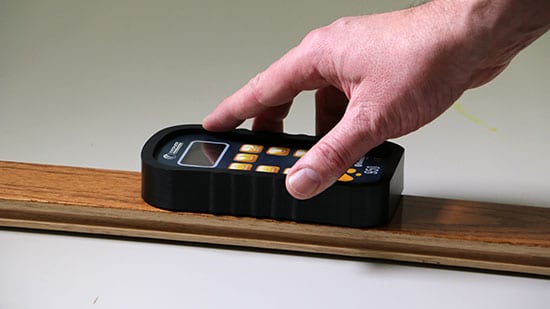Every contractor and home improvement pro knows that moisture is the enemy of quality construction and longevity. Homeowners and commercial building owners want their spaces to last a long time, and they expect that the building, walls, ceiling and floors will have a long life. For flooring contractors, that means making sure the surface is ready to accept tile, carpet, vinyl, wood or other surfaces.
So how do you know if the subfloor is prepped to keep your creations looking and performing well for years to come? It starts with a moisture meter
Moisture meters determine moisture content by measuring the electrical properties in the wood, using either a pin or pinless sensor. Pinless meters use a sensor pad that contacts the wood surface but does not physically damage or penetrate the surface to take a reading
In contrast, a pin-type meter has two metal pins that must physically penetrate the wood surface in order to take a reading.
Regardless of the style, a quality moisture meter will accurately measure the moisture content of the wood substrate to 0.1% of the wood’s moisture content. Your flooring material manufacturer will generally have a range of acceptable moisture levels for successful installation. If you install wood floors, you can use the meter to measure the moisture in the floor planks as well, and make decisions about any mediation that needs to happen before installation.
Ensuring the subfloor has the right moisture content will prevent problems later, even if it means taking extra time to dry the surface, dehumidify the space or take other measures to address the root cause. The end result will be a project that stays flat, doesn’t warp or cause cracks over time, and earns you a reputation for doing jobs right, the first time.
If you have questions about moisture meters (the pros we know use and recommend the Wager line), get in touch today.

